On Thursday, April 20, 2023 the ELCA Church Council unanimously adopted the church’s sixteenth social message, titled “Earth’s Climate Crisis“ — an action that acknowledges the urgency of this critical moment and our responsibility as Christians to respond decisively. On this Earth Day, 2023, Presiding Bishop Elizabeth Eaton released a video on the ELCA’s Facebook page highlighting this call to action. Eaton named this as a “moment of Kairos, a critical moment in time when God is calling for decisive action in history.”
This action will need to happen in our congregations and communities, but also reach far beyond them, because challenges this monumental require strategic collaboration and partnerships. Here are just a few snapshots of how the climate crisis is being met through ecumenical engagement, statements, and actions from the ELCA, the World Council of Churches, the Anglican Church of Canada, and the Evangelical Lutheran Church in Canada.
Ecumenical Conference on Faith and Climate Justice in Puerto Rico
By: Rev. Dr. Carmelo Santos
On Saturday February 25, 2023 nearly 300 hundred people gathered for the first ecumenical conference on Faith and Climate Justice in Puerto Rico. The conference was an initiative of the ELCA Office of the Presiding Bishop through the combined leadership of Jennifer DeLeon, ELCA Director for Racial Justice, and myself, the ELCA Director for Theological Diversity and Ecumenical & Inter-Religious Engagement, along with the generous sponsorship of Lutheran Disaster Response and ELCA World Hunger.
The actual planning and implementation of the event was a beautiful ecumenical collaboration between the ELCA’s Caribbean Synod (Office of the Bishop), the Diocese of Puerto Rico of the Episcopal Church, the Christian Church (Disciples of Christ), the Archdiocese of San Juan of the Catholic Church (through their “pastoral ecological” of Sister Lissette Aviles), and civic organizations such as the Rockefeller Foundation. The purpose of the event was to prayerfully discern together how the challenge of climate justice can be addressed from the perspective of faith, with examples of what is already happening on the ground.
We chose Puerto Rico in part because the Caribbean is on the front lines of climate change, as demonstrated by the devastating effects of hurricanes Irma and Maria in 2017 from which the people are still recovering, and because of the creative ways in which churches and civic groups are responding to the challenge. The rest of the church can learn much from what is happening there.
The event opened with a prayer from the Episcopal bishop followed by a presentation on the basics of climate change by a local prominent scientist and a video that we commissioned on the history of the work on faith-based climate justice in Puerto Rico. That was followed by a series of presentations by inspiring leaders on the ways different organizations are making a positive impact at the local level addressing the challenges of climate (in)justice in very practical ways. Others presented on the theology underlying the work of climate justice, from Pope Francis’ encyclical Laudato Si, to biblical texts and theological principles guiding this work. The event concluded by people gathering into small groups selected based on the region of the island where they live, so that they could discuss, with the guidance of leaders who had been trained ahead of time, how the issues discussed affect their communities immediately and how they might have been feeling called by the Spirit to get involved.
Our time together created much excitement and momentum to join efforts ecumenically in the urgent work of climate justice done from a faith perspective. We are working on editing the presentations and securing permissions to make them available to the wider public. We will also be planning how to build on this success.
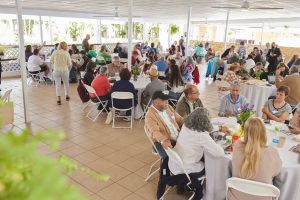
Equity is the Path to Sustainability
This is an excerpt from a WCC article published on March 22, 2023. The article can be read in its entirety here.
World Council of Churches (WCC) general secretary Rev. Prof. Dr Jerry Pillay commented on the synthesis of the 6th Assessment Report of the Intergovernmental Panel on Climate Change, released 20 March.
“There is a rapidly closing window of opportunity to secure a liveable and sustainable future for all,” the report underlines. “Rapid and far-reaching transitions across all sectors and systems are necessary.”
The report also adds that our choices and actions—or inaction—in the next few years “will have impacts now and for thousands of years.”
Pillay underscored that the climate emergency demands integrated and coordinated efforts. “The report clearly shows that climate change is not merely an environmental phenomenon but one with profound implications on economies, societies, and the health and livelihoods of people especially those living in poverty,” he said. “This means that our response to the climate emergency must take an integrated and coordinated approach, understanding that mitigation and adaptation efforts are two sides of the same coin, comprehending the necessity of institutional, economic, and social transformation, and recognizing the need for global collaboration to unite our efforts.”
A second message Pillay shared is that equity is the path to sustainability. “The report reveals that the way forward is a climate-resilient development that integrates actions to curb emissions with measures to adapt to climate change in ways that enhance people’s health and livelihoods while at the same time reducing hunger, poverty, and inequality and delivering clean energy, water, and air for all,” he said, adding a third point: “Climate solutions exist; political commitment is needed.”
But political will is not enough, he concluded. “The pursuit of short-term financial gains through aggressive land use and wanton resource extraction has wrought immeasurable costs to life and all creation and will impose a heavy burden on our children for millennia, imperiling their very future,” he said. “As Christians we believe that life-in-creation is a sacred gift from God.”
A Message from Anglican, Lutheran Leaders for Earth Day 2023
Every year on April 22nd, communities and individuals around the world participate in Earth Day. This is a global occasion for collective reflection on our current environmental realities, and an opportunity for commitment to action to protect and preserve Creation for the generations to come. As Christians, we are called to recognize the sacredness of the gift of God’s Creation at all times, and Earth Day provides a distinct occasion to join with other faith communities, networks and civil society organizations to address the ongoing ecological crisis.
This year we join with our partners in the For the Love of Creation network to encourage you to come Together For the Love of Creation throughout Earth Week (April 16-22). This is an opportunity to break down barriers between faith communities by considering ways we might come together with others to connect, grow, listen, inspire hope, and affect change. You might plan an activity or a gathering and invite others in your community to join you, or you may seek out what others are doing and find ways to come alongside those efforts. Activities might range from intentional times of prayer to greening of your church buildings to policy advocacy with all levels of government. There are some suggestions for activities on the For the Love of Creation website, along with an interactive map where groups can share information on local events across the country. Together we can amplify each others efforts, and increase the effectiveness of our actions.
We cannot deny that the crisis does indeed continue across the globe. Significant and sustained increases to global temperatures are resulting in increased extreme weather events, accelerated biodiversity loss, and ongoing impacts on health and well-being. These impacts continue to be experienced disproportionately by Indigenous peoples and by communities in Global South countries, particularly in low-lying coastal areas and small island nations. Only through collective action can we limit these negative outcomes and reduce the impact of a changing climate.
As we continue to celebrate the miracle of Christ’s resurrection, let us keep hold of the hope of new life and new possibility that is offered to us. It is not too late for us to make a measurable difference in the impacts of global warming and biodiversity loss. The most recent report of the Intergovernmental Panel on Climate Change insists that with “deep, rapid, and sustained reductions in greenhouse gas emissions” it is still possible to slow the rate of global warming.1 There is still hope, and by acting together we can help to cultivate this hope for our world.
As you work together with your communities this Earth Week (and beyond), please join us in prayer:
Loving God, be with us as we face the challenges in caring for this Creation which you have shared with us. Enfold us as we come together for the love of your Creation. Inspire us as we continue to seek new and creative ways to preserve this gift of Creation for those who will come after us. Amen
![[signed] +Christopher Harper](https://www.anglicanlutheran.ca/wp-content/uploads/chris-harper-signature.png)
The Most Rev. Chris Harper
National Indigenous Anglican Archbishop, Anglican Church of Canada
![[signed] +Susan C Johnson](https://www.anglicanlutheran.ca/wp-content/uploads/Susan-Johnson-Signature.jpg)
The Rev. Susan Johnson
National Bishop, Evangelical Lutheran Church in Canada
![[signed] +Linda Nicholls](https://www.anglicanlutheran.ca/wp-content/uploads/nicholls-sig_black.png)
The Most Rev. Linda Nicholls
Archbishop and Primate, Anglican Church of Canada
- Intergovernmental Panel on Climate Change, “Synthesis Report of the IPCC Sixth Assessment Report (AR6): Summary for Policymakers” paragraph B.1, p.12 https://report.ipcc.ch/ar6syr/pdf/IPCC_AR6_SYR_SPM.pdf
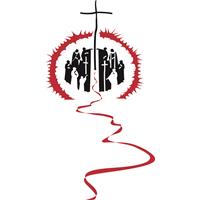 Key Areas of Focus
Key Areas of Focus
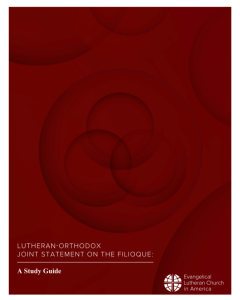 To support this, we are pleased to announce
To support this, we are pleased to announce 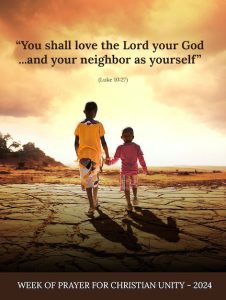
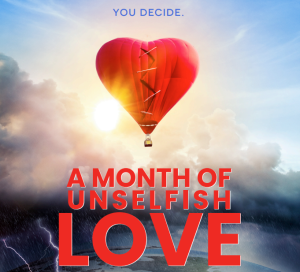
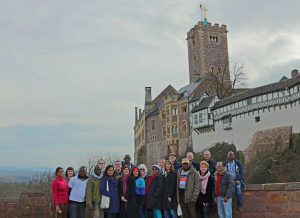
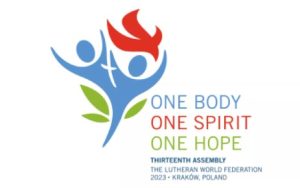
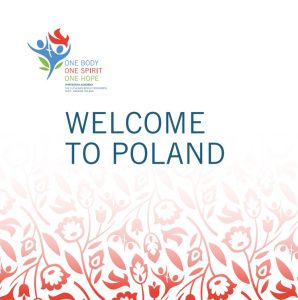
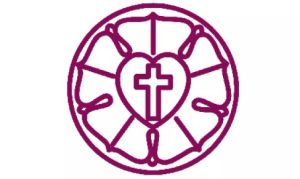
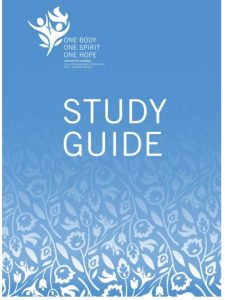
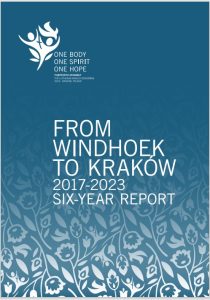
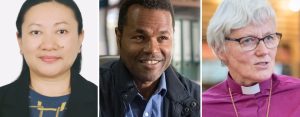
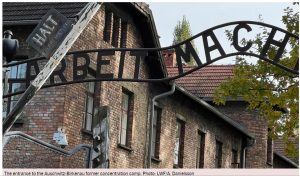
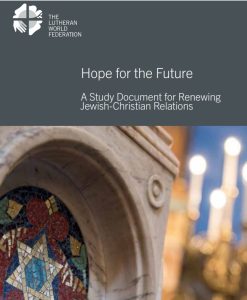

![[signed] +Christopher Harper](https://www.anglicanlutheran.ca/wp-content/uploads/chris-harper-signature.png)
![[signed] +Susan C Johnson](https://www.anglicanlutheran.ca/wp-content/uploads/Susan-Johnson-Signature.jpg)
![[signed] +Linda Nicholls](https://www.anglicanlutheran.ca/wp-content/uploads/nicholls-sig_black.png)